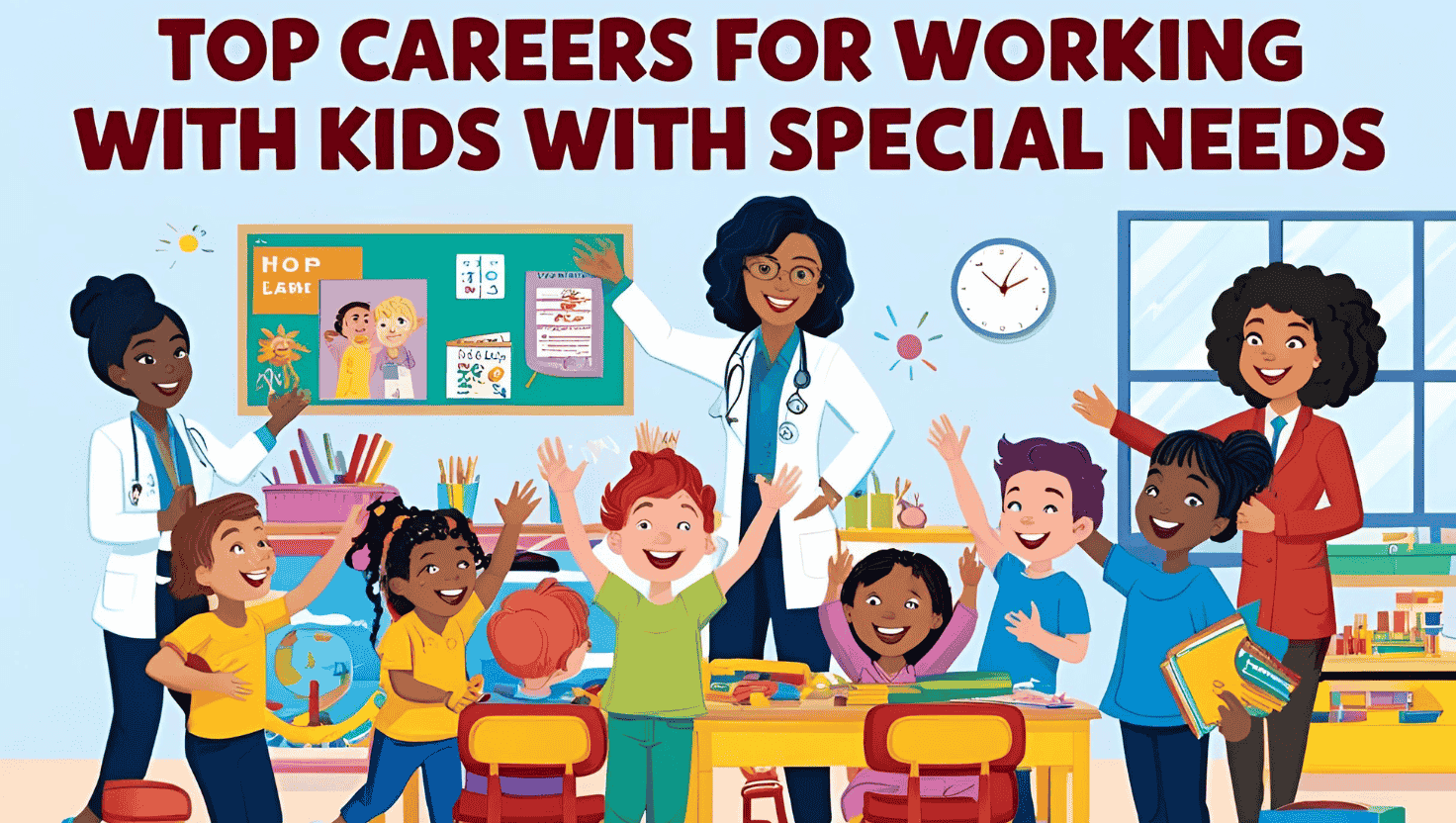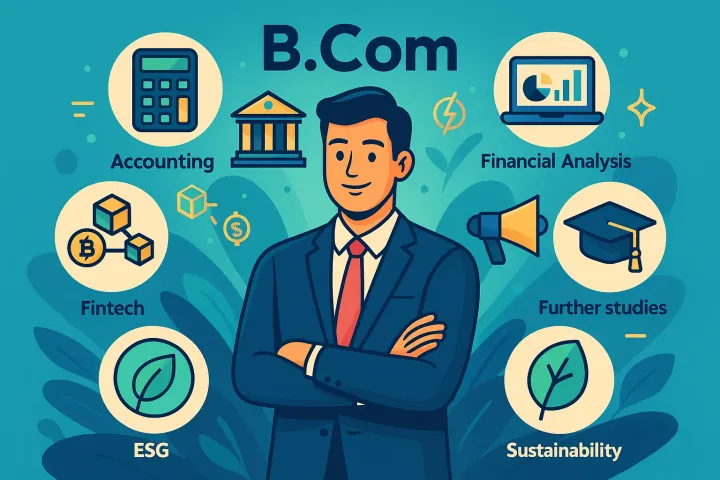Top Careers for Working with Kids with Special Needs
Working with kids with special needs is a career that blends heart and impact. Here’s your 2025 guide to the top careers, tips, and resources to

Working with kids with special needs is a career that blends heart and impact. Here’s your 2025 guide to the top careers, tips, and resources to dive in.
Top Careers
- Special Education Teacher
- Role: Teach skills, create IEPs.
- Daily Tasks: Plan lessons, adapt materials, lead groups, meet parents.
- Requirements: Bachelor’s in special education; certification (Ed.gov).
- Salary: $61,000–$85,000/year.
- Demand: High due to inclusion trends.
- Speech-Language Pathologist (SLP)
- Role: Treat communication disorders.
- Daily Tasks: Run therapy with games, assess progress, collaborate.
- Requirements: Master’s; ASHA certification (ASHA.org).
- Salary: $80,000–$105,000/year.
- Demand: Growing, with teletherapy options.
- Occupational Therapist (OT)
- Role: Improve daily skills.
- Daily Tasks: Guide exercises, set up sensory rooms, advise teachers.
- Requirements: Master’s; licensure (AOTA.org).
- Salary: $85,000–$110,000/year.
- Demand: Vital for sensory needs.
- Behavior Analyst (BCBA)
- Role: Design ABA plans.
- Daily Tasks: Observe behaviors, create plans, train staff, track data.
- Requirements: Master’s; BCBA certification (BACB.com).
- Salary: $70,000–$95,000/year.
- Demand: Surging with autism diagnoses.
- School Counselor/Psychologist
- Role: Support emotional needs.
- Daily Tasks: Counsel kids, run groups, spot mental health issues.
- Requirements: Master’s; licensure (NASPonline.org).
- Salary: $60,000–$90,000/year.
- Demand: Rising with mental health focus.
- Paraprofessional
- Role: Assist in classrooms.
- Daily Tasks: Help with tasks, redirect behaviors, guide transitions.
- Requirements: High school diploma; some certification.
- Salary: $30,000–$45,000/year.
- Demand: Entry-level with growth potential.
Tips for Success
- Communicate Clearly: Use plain language for IEPs; listen actively.
- Stay Current: Attend CEC workshops (exceptionalchildren.org); explore apps like Proloquo2Go (assistiveware.com).
- Be Adaptable: Use visual aids for autism; pivot strategies.
- Collaborate: Align with OTs, SLPs in meetings.
- Self-Care: Join WeAreTeachers or X’s #SpecialEd.
- Know Laws: Study IDEA (Ed.gov); keep records.
Trends (2025)
- Teletherapy: Virtual SLP/OT services growing.
- Inclusion: UDL training key (CAST.org).
- Mental Health: Trauma-informed practices in demand.
Getting Started
- Education: Bachelor’s in education/psychology; master’s for SLP/OT.
- Experience: Volunteer at Special Olympics.
- Network: Follow @SpecialEdTeach on X.
- Entry Roles: Start as a paraprofessional.
Resources
- Web: Edutopia.org, ASHA.org, AOTA.org.
- X: #SpecialEducation, @AutismSociety.
- Courses: Coursera, Udemy.
Conclusion
This work is about helping kids find their strengths, one small victory at a time. It’s tough but magical. Take your next step—enroll in a course, volunteer, or connect on X. These kids need you!
Here are other articles.
Job Mela 2025: Unleashing Opportunities
Hey there, job seekers! Get ready to mark your calendars because Career Fest 2025 is coming to shake up your career game!

Top 15 Online Jobs for Students to Make Bank and Build Skills
The digital world’s poppin’ off, and there’s no shortage of ways for students to make money online.

Share with others.






Comments ()